5 Western Things That Went Off In Other Countries
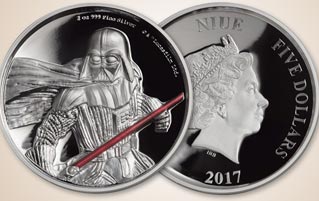
Western civilization is hit or miss. Sometimes you get Waffle House, sometimes you get genocide. But once you push aside the white people who are too into their whiteness, there's definitely some stuff to like. In fact, some non-Western countries are into Western traditions waaaay more than we are, and their interpretations can get pretty weird. For example ...
Butler Cafes, Where Japanese Women Get Served By White Nerds
Back in the early 2000s, Yuki Hirohata interviewed 200 Japanese women to see what they'd want in a female-oriented restaurant. Although Hirohata probably expected answers ranging from Hello Kitty napkins to anywhere they could avoid subway gropers, the most common request was a place where women could practice their English with sexy foreign men. You'd assume that meant crab cakes eaten off the abs of Rock lookalikes, but Japanese women have slightly different tastes. When Hirohata opened the Princess-themed Butlers Cafe in 2002, she made sure to exclusively employ only the sexiest foreigners the West had to offer: nerdy white dudes who look like they'd lose a fight to a stiff breeze.
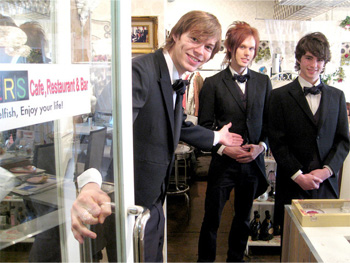
And lest you think this is one of those strange one-off fad restaurants that cater to a niche clientele, several of these have been humming along for years, all staffed by every dude from high school who wouldn't shut up about Sailor Moon. These guys serve cake, flirt, and help edit patrons' English-language diaries for clarity and significantly more instances of the phrase "dope-ass white boys." Women are treated like princesses, which includes the option of wearing a tiara or receiving a little bell to summon their butler.
The question that immediately springs to mind is "Why would anybody want this?" Or if you're currently wearing three pieces of Overwatch merchandise, "Where do I apply?" These customers don't want hyper-masculine men; they want hyper-polite men who will let them unwind from their stress. The interest comes from Japanese women looking for a way to reject Japanese men, or at least the ones they see as "disrespectful, narrow-minded, and unable to care for themselves." Boy are they in for a rude awakening about American nerd culture.
Iran Has Tons Of Knockoff American Restaurants
In case you haven't been following the news since the invention of the news, Iran and America aren't exactly best buds. You know how relationships are ... one overthrow of a democratically elected government to install a brutal dictator, one hostage situation, and suddenly it's "complicated" and you're both seeing other diplomats. But that doesn't mean the average Iranian hates America. Although it may be difficult for the two government to agree on matters of policy, average people agree on something important: pizza is good.
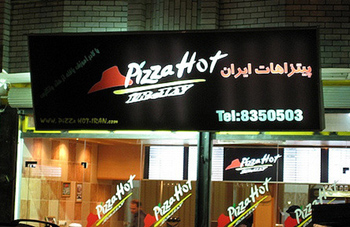
American fast food chains haven't been allowed in Iran since the Revolution (one brave Iranian opened a McDonald's in 1994, only to see it burned down two days later), so some entrepreneurial Iranians have gotten ... creative with licenses. Knockoff restaurants have sprung up everywhere, from Burger House to Mash Donald's to ZFC (presumably Zarathustra Fried Chicken).
Sometimes the similarities stop at the decor. You're not going to find a Mash Donald's falafel sandwich at its more official counterpart. But other times they barely even bother changing the name. Subway looks like it's still called Subway, they just puked the letters all over the building so that even the most astute copyright lawyer would have a hard time telling what the hell the name of the place was.
Bad foreign relations are actually helpful for copyright-dodging restaurateurs looking to sate curiosity about the West. If the one true Ronald McDonald could show up in Iran slinging McRibs and lawsuits, the native knockoffs wouldn't survive long. But as long as both governments hate each other, places like Super Star and Raees Coffee can thrive.
China Pays Homage To The Wild West With An Elaborate Recreation Of Jackson Hole, Wyoming
China has replicated famous chunks of Paris and London for the amusement of locals, but Las Vegas and Disney World ape world cities too. What's far more inexplicable is China's recreation of Jackson Hole, Wyoming, home to all of 10,000 people. What does Jackson Hole offer China, beyond double entendres? The same kitschy cowboy crap your grandma has had lying around her house since 1884.
Thanks to its ski resorts and beautiful landscapes, the real Jackson Hole is a popular tourist destination in America. Several celebrities own houses there too. Chinese developers were fascinated by the town's mixture of pioneering Western roots and elite celebrity status, and they figured Chinese people would pay good money to visit something so thoroughly American. They were right.
Chinese Jackson Hole, in addition to being the name of our new kung-fu-sploitation film, has become an upscale community with Western-style architecture and expensive housing, mixed with tacky "Old West" features and decor.
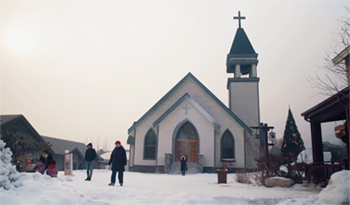
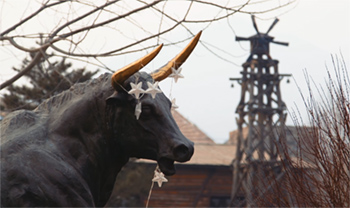
The goal was to make the replica town as "authentic as possible," which of course means throwing a bunch of cowboy and Indian shows alongside elaborate celebrations of Christmas, Thanksgiving, and Halloween. A large part of the resort's success has been linked to the idea that it represents a break from the Chinese lifestyle and an embrace of rugged Western ideals of individualism (or at least a fantasy tourist version of it). Also, Mickey Mouse and the Minions are there. So it's got that going for it.
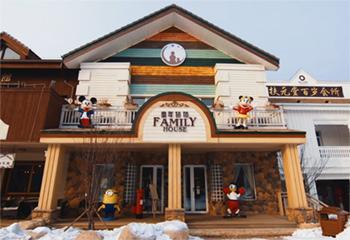
Niue Uses Disney Coins As Legal Tender
It's honestly surprising that Disney doesn't have its own currency. The corporation is a gigantic monolith that owns everything you and your children love -- Marvel, Star Wars, the Song Of The South Cinematic Universe. But if they did decide to start printing their own Goofy bucks and go toe to toe with the fed, they could draw experience from a test run in which they cooperated with the government. Not the American government, mind you, but the government of Niue.
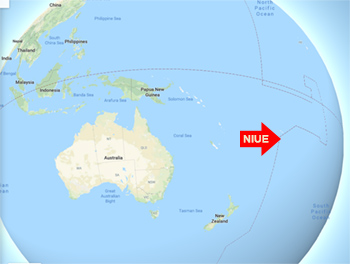
Niue is a 100-square-mile island in the Pacific boasting a population of about 1,600, or approximately the number of people perpetually ahead of you in line for Space Mountain. Since Niue relies heavily on foreign aid, they wanted another source of revenue. And they found it in printing pop culture icons on their legal tender.
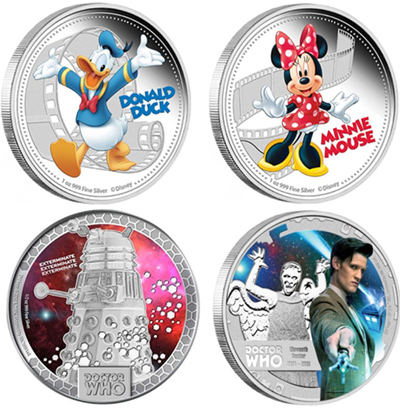
While that money can be used to purchase hot dogs on Niue itself, their real value comes from Western coin collectors, who are willing to hop online and pay hundreds of dollars for these limited edition silver and gold coins. Niue hopes that tourists will eventually come visit their tiny island, inspired by their positive experiences of purchasing Princess Leia bikini nickels with rush shipping at 3 a.m.
They're literally printing free money, and it's not a tiny operation. Niue is expecting to make around $4.5 million on these coins over the next decade, which is essentially 20 percent of their economy. So why not grab a two-dollar coin with Alden Ehrenreich's face on it? You'll be the coolest customer Taco Bell's ever had.
South Koreans Study The Talmud Because They Think It'll Make Them Rich And Successful
We're confident that if we asked you to name some of South Korea's top-selling books, you would never come up with the Talmud. And it's not because Seoul has a thriving Jewish community you've never heard of. A 2014 study published by the Anti-Defamation League found that 53 percent of South Korean adults agreed with statements like "Jews have too much power in the business world" and "Jews have too much control over global affairs." But unlike the average YouTube commenter, many South Koreans see the gross stereotype that Jewish people are power and money hungry as a positive attribute to emulate. It's like thinking all Italians are in the Mafia, but that's awesome because look at all the nice suits they wear and great food they eat.
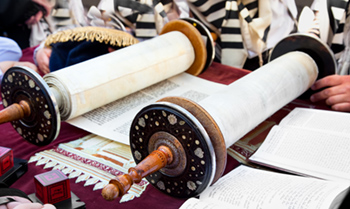
Many South Koreans have never even met a Jewish person, but it's estimated that 80 percent of the country is at least somewhat familiar with the Talmud, or at least various accessible repackagings of the dense, challenging text which reinterpret it as self-help and life advice. There are even schools dedicated to giving South Korean students a "Jewish education," plus subgenres of study like "prenatal Talmud," whereby expectant mothers play audio versions of the holy book for their future business leaders and Nobel Prize winners.
None of them intend to convert to Judaism, but they see the success (or perceived dominance) of Jewish people in the world and want a piece of the kosher pie for themselves. Actual Jewish people are torn between seeing this as a compelling way to spread their culture and worrying that there's a fine line between "positive" stereotypes and a drift into angry antisemitism. And if this all sounds ridiculous to you, keep in mind that on any given day, there are thousands of Americans posting butchered quotes misattributed to Confucius on their Instagram feeds because old Asian people must be wise.
Jordan Breeding also writes for a whole mess of other people, the Twitter, and a weird amount of gas station bathrooms.
The Talmud is actually a pretty solid read, if you get the chance.
Support your favorite Cracked writers with a visit to our Contribution Page. Please and thank you.
For more, check out 7 Things From America That Are Insanely Popular Overseas and 7 Everyday Experiences Other Countries Do Waaay Differently.
Follow us on Facebook. You'll love it.